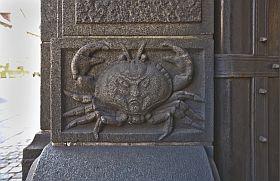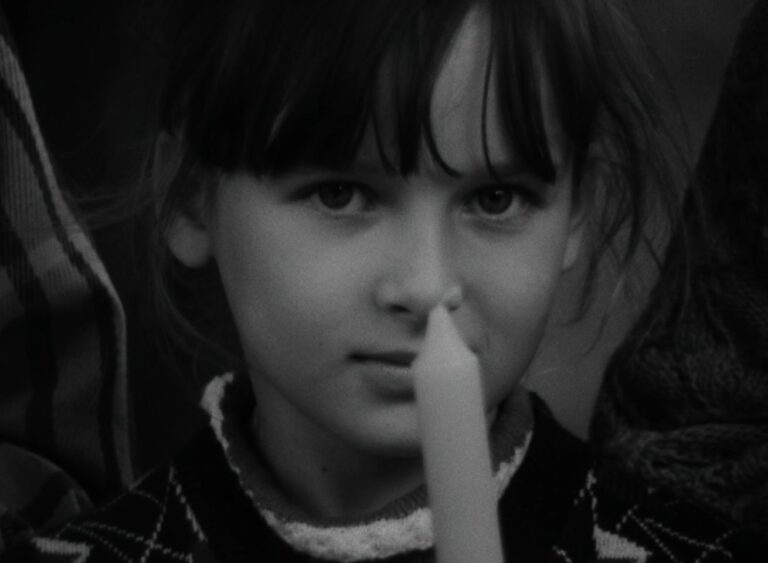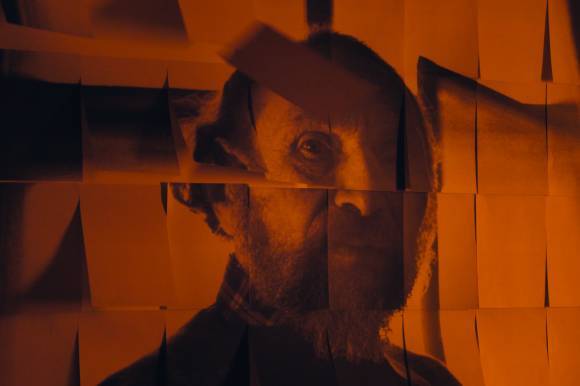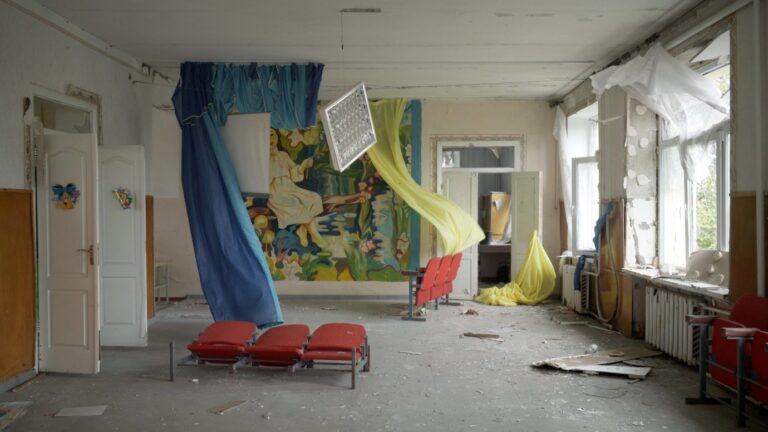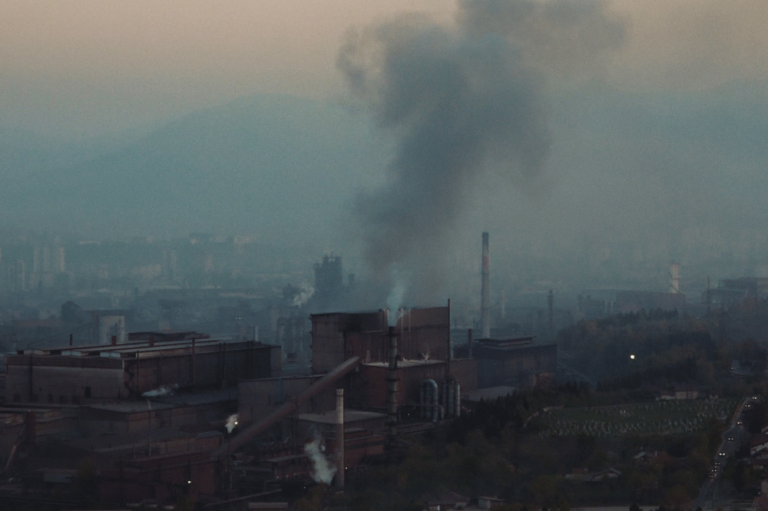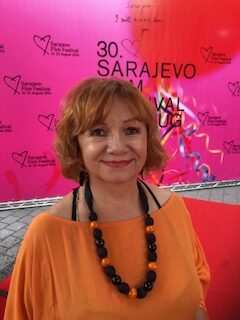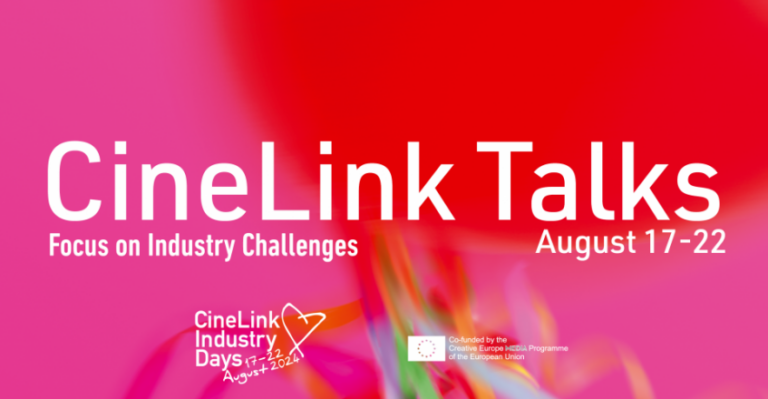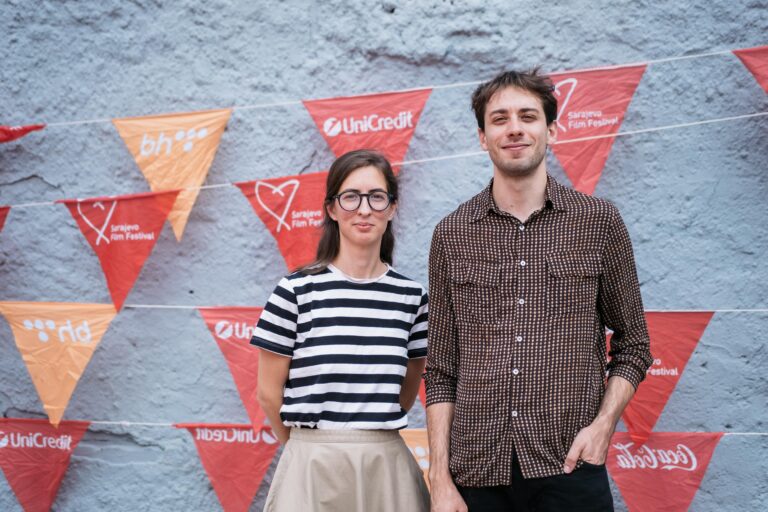In collaboration with various partners, the panels will cover a wide range of relevant topics, including best practices in managing intellectual property, co-productions, artificial intelligence, gaming, representation, and intimacy coordination. The 2024 CineLink Talks will revolve around three core themes: intellectual property (IP), industry challenges, and co-producing.
The industry is increasingly recognizing its responsibility to create a safer, more conscious environment for everyone involved. This means addressing not only the environmental impact of filmmaking but also the mental and emotional well-being of those who work within the industry. Panels will explore what it truly takes to be more responsible today, from implementing sustainable practices that reduce the industry’s carbon footprint to tackling the mental health challenges posed by imposter syndrome, particularly among women in film. The evolving role of intimacy coordinators will also be a focal point, with experts from the U.S., the Baltics, and the Balkans sharing their experiences on navigating scepticism around this new industry field. Through our panels, representation and the amplification of diverse voices, which are essential to the evolution of the industry, will be addressed. To this end, CineLink Industry Days has set up a panel that explores the role of the European Film Academy in promoting and supporting filmmakers from Southeast Europe, emphasizing the increasing significance of voices from smaller European territories in contrast to the leading high-production countries.
As we explore the importance of diverse representation in the industry, we also turn our attention to how emerging technologies are reshaping the landscape. The rapid advancement of artificial intelligence is changing the relationship between filmmakers and audiences. Panels will delve into the ethical and practical implications of AI in film, discussing how this technology can be used responsibly to maintain trust and authenticity in storytelling. Furthermore, the integration of gaming technology, particularly tools like Unreal Engine, will be explored, showcasing how these innovations are opening new avenues for creativity and efficiency in filmmaking.
GENDERED DOUBTS: WOMEN IN FILM AND IMPOSTER SYNDROME PRESENTED BY MASTERCARD
Explore the impact of gendered expectations and industry pressures on self-doubt among successful women in film in this engaging panel discussion, which delves into the 4 P’s of imposter syndrome—perfectionism, people-pleasing, project paralysis, and procrastination—and how they affect women in the industry. Join established industry professionals as they share their personal experiences and practical strategies for confronting and overcoming these challenges. This conversation aims to empower women and promote a more supportive and inclusive creative community.
TAMARA TATISHVILI | Head, Hubert Bals Fund | NL
MISAN SAGAY | Screenwriter | UK
DANIELLE TURKOV WILSON | Founder and CEO, Think-Film Impact Production | UK
UNA GUNJAK | Film Director | BA
MODERATED BY Mia Avdagić | CineLink Industry Days Training and Skills Coordinator, Sarajevo Film Festival | BA
REDEFINING BOUNDARIES: CREATING SAFE SPACES IN THE AUDIO-VISUAL INDUSTRY—INSIGHTS FROM INTIMACY COORDINATORS
In recent years, the role of the intimacy coordinator has become increasingly vital in the audio-visual industry, as they ensure that scenes involving physical and/or emotional intimacy are conducted with the utmost care and respect for all involved parties. As a relatively new position in the industry, it has faced growing skepticism. This panel focuses on sharing the experiences of industry professionals from three different regions and professional environments, delving into the responsibilities and practices of intimacy coordinators and highlighting their contributions to fostering safe and supportive on-set environments. The discussion sheds light on how intimacy coordinators balance maintaining a production’s creative vision with providing actors with a secure environment in which to deliver their best work. Topics include the evolution of the role, best practices for coordinating intimate scenes, the importance of clear communication and consent, and the impact of intimacy coordination on both the creative process and the well-being of cast and crew.
AMANDA BLUMENTHAL | Intimacy Coordinator and Founder, Intimacy Professionals Association | US
VIRGINIJA VAREIKYTĖ | Intimacy Coordinator, Baltic Intimacy Professionals | LT
MARKO MARČEC | Intimacy Coordinator | Intimacy Coordinators Serbia | RS
ANĐELA RAJIĆ NOVAKOVIĆ | Intimacy Coordinator | Intimacy Coordinators Serbia | RS
MODERATED BY Timka Grin | Casting Director, T.G. Casting | BA
THE POSITION OF SOUTHEAST EUROPEAN FILMMAKERS IN THE EUROPEAN FILM ACADEMY
This panel explores the role of the European Film Academy (EFA) in promoting and supporting filmmakers from Southeast Europe, emphasising the increasing significance of voices from smaller European territories in contrast to the leading high-production countries. It will delve into the EFA’s importance for the region, examining both its impact on regional cinema and its relationship with local filmmakers. Producers from the region whose films have been nominated for and won European Film Awards share their experiences, illustrating what these accolades have meant for their projects and careers. The discussion highlights how the EFA amplifies voices from Southeast Europe, thereby helping filmmakers gain greater visibility and recognition, fostering opportunities for collaboration and growth in the European and global film industry, and contributing to the diversity of the European film landscape.
MATTHIJS WOUTER KNOL | CEO and Director, European Film Academy | DE
MILJENKA ČOGELJA | Producer, Pipser | HR
JASMILA ŽBANIĆ | Director and Screenwriter, Deblokada | BA
MODERATED BY Nebojša Jovanović | Talents Sarajevo Programme Manager, Sarajevo Film Festival | BA
LIGHTS, CAMERA, SUSTAINABILITY: WHAT DOES IT TAKE TO BECOME A GREEN FILM CHAMPION
From Sweden to Croatia, with experiences from Germany and Portugal in between, a panel of change agents is working to transform the industry; these are the stories of the challenges faced, the inspiration found, and the successes achieved. In conversation with the guests, current best practices in energy conservation, transportation, accommodation, catering, and production design, as well as education, training, awareness-raising, and obtaining green certificates is explored. An inquiry is made into how anyone can become a film industry sustainability champion, fostering a positive impact on the environment and the industry as a whole. Remember: It doesn’t matter where you are now; what matters is what you do starting now.
DÖRTE SCHNEIDER GARCIA | Certified Green Consultant | PT
HANNA NYBESON | Sustainability Advisor, Nybeson Solutions | SE
MAJA DOMJAN | Sustainability Manager, Eventful | HR
MODERATED BY Garret Patrick Kelly | Sustainability Advisor, Sarajevo Film Festival | BA
FILMMAKING WITH UNREAL ENGINE
Renowned Serbian director Sava Živković shares his filmmaking journey, focusing on how emerging real-time technologies, particularly Unreal Engine, have had a positive impact on animation production. This panel explores how these advancements have opened the doors for new, unconventional approaches to filmmaking, thereby enhancing creativity and efficiency in the industry. Živković’s expertise in blending cutting-edge technology with compelling narratives highlights the evolving landscape of animation and visual effects.
SAVA ŽIVKOVIĆ | Film Director | RS
MODERATED BY Igor Simić | Creative Director, Demagog Studio | RS
AI IN FILM: THE CHANGING RELATIONSHIP BETWEEN FILMMAKERS AND AUDIENCES
With the introduction and rapid development of generative AI, such that the tools of disinformation are available to everyone, questions of what is real, reliable information have become more valid than ever. Most people cannot distinguish between deepfakes and real images and this technology is developing at high speed. Traditionally, audiences have been able to place their trust in documentary films and journalism as carriers of true, authentic, reliable stories. Documentary audiences do not want to be manipulated. However, filmmakers too have an increasing choice of AI tools available to them, and these can be used not just to speed up the filmmaking process but also to generate ideas, and to create images and audio. How can we ensure that audiences can still trust documentary filmmakers in the age of AI? What kinds of measures and procedures should be in place to ensure transparency and credibility? Is there something for audiences to be excited about, like personalised content? Join us for a discussion about the changing relationship between filmmakers and their audiences in the age of generative AI.
DOMINIC LEES | Associate Professor of Filmmaking, University of Reading | UK
PETR SALABA | Film Director, Artificial Intelligence Center | CZ
EREC BREHMER | Film Director, Kolf Agency | DE
MODERATED BY Donata von Perfall | Managing Director, Documentary Campus | DE
ABOUT SEEING AND BELIEVING: ON THE USE AND EFFECTS OF GENERATIVE AI IN DOCUMENTARY FILM
Truth plays a crucial role in documentary filmmaking. Given the rapid development of artificial intelligence and its applications, we should all ask ourselves how we want to produce and receive films in the coming years. What opportunities and challenges will shape the way filmmakers will work in the future? What moral and ethical criteria should we place on ourselves? The possibilities and limits of free AI tools aree discussed in this session using concrete case studies.
EREC BREHMER | Film Director, Kolf Agency | DE
MODEREATED BY Donata von Perfall | Managing Director, Documentary Campus | DE
DECODING THE DOCUMENTARY INDUSTRY: WHAT DECISION-MAKERS LOOKING FOR?
This panel aims to demystify the documentary industry by shedding light on the perspectives of decision-makers when they select documentary films. Industry insiders share valuable insight into the trends and considerations influencing their choices. This session offers valuable guidance to filmmakers and content creators seeking to navigate the documentary landscape and seeks to increase their chances of securing funding and distribution opportunities.
HANKA KASTELICOVÁ | VP, Documentaries, Warner Bros. Discovery/HBO | CZ
HANNE BIERMANN | Festivals and Marketing Manager, Film Harbour | DE
MADS MIKKELSEN | Head of Programme, CPH:DOX | DK
KEONI KAILIMAI | Senior Programme Executive & Executive Producer, BBC | UK
MODERATED BY Margje de Koning | Artistic Director | Movies that Matter | NL
The list of previously announced talks, on intellectual property you can find here.




